Empowered by sunflowers: The inclusive program now at Denver International Airport

JOHNSTOWN, Colo. — Happiness, optimism, joy and peace.
The yellow petals of sunflowers often signal feelings of comfort, and now for many traveling through Denver International Airport, like the Diaz family, the sunflower now carries an extra sense of safety and acceptance.
The Diaz family lives in Johnstown, Colorado near Loveland after moving there 16 years ago from California. They love the community, are active in their church, enjoy training their young dog and simply love spending time with each other and friends around the dinner table. And like many during the pandemic, they also started a new hobby.
“Our backyard is a safe haven for lots of different types of birds,” said Michelle Clavijo-Diaz, who has worked in education and technology and is a wife and mom to three teenagers. “We all have our jobs ... we swap out the food, we fill the water. It's something that we enjoy doing as a family.”
The Diaz family went to the next level in birdwatching by learning about what type of birds might fly over their home and putting out different types of food to attract birds to their backyard, which include sunflower seeds. This means by the end of the summer the corner of the backyard is full of tall sunflowers from birds dropping the seeds. So for the Diaz family, sunflowers keep popping up in their lives.
The Diaz family is also one full of travelers. Since Clavijo-Diaz was very young, she and her kids have taken trips around the country and the world on planes. Even though they are well practiced, traveling with five people and luggage through some of the busiest airports in the world can be challenging, especially for their 18-year-old son, Benjamin.
“He's always been very open about sharing where he feels overwhelmed, and in an airport walking into a situation where it's loud, people are with bags running back and forth, he would probably use the term sensory overload,” said Clavijo-Diaz.
“[The airport is] really busy, chaotic … seeing people rush around. I get sort of jumpy and I’m really cautious with my surroundings,” said Benjamin.
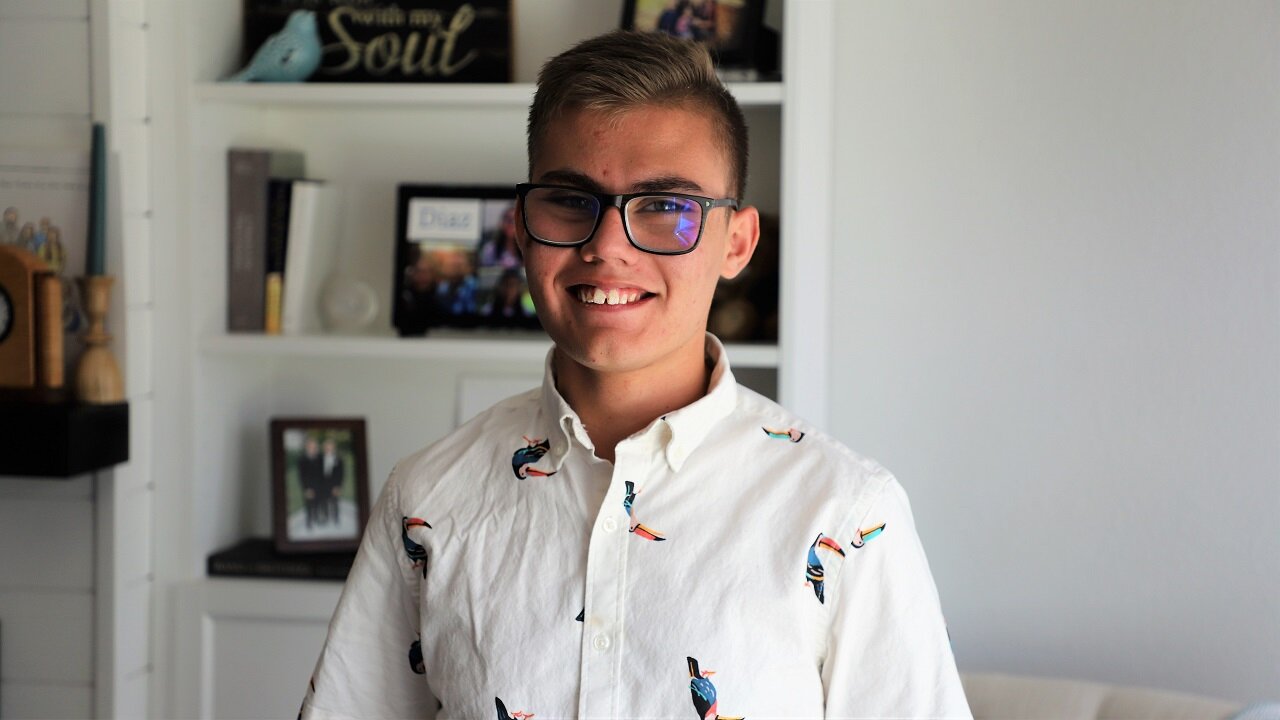
Benjamin was diagnosed with a rare brain disorder shortly after his birth. During her pregnancy with him, Clavijo-Diaz said all signs pointed to a typical pregnancy. She went into labor on time, ready to give birth on Benjamin’s due date. However, she said she started to struggle in delivery and had a caesarean section, also known as a C-section. That’s when she distinctly remembers a nurse commenting on how large baby Benjamin’s head was.
“My first thought was knowing my own nephew, who was the first of the grandbabies ... he had a big head and we're like, ‘Oh, well, that's consistent with our family. We’ve got big-headed kids.’”
It wasn’t until that evening that doctors said they wanted to examine Benjamin further and Clavijo-Diaz knew it was something more. After transferring hospitals, receiving various tests and scans, Benjamin was diagnosed with Agenesis of Corpus Callosum (ACC) and Hydrocephalus, a buildup of fluid in the brain which is why his head was large. ACC occurs when there is a partial or complete absence of the area of the brain that connects the two cerebral hemispheres.
“So, when I'm trying to explain to others what ACC is I will often do a comparison to autism ... Where [Benjamin] tends to veer differently is in his social ability,” said Clavijo-Diaz.
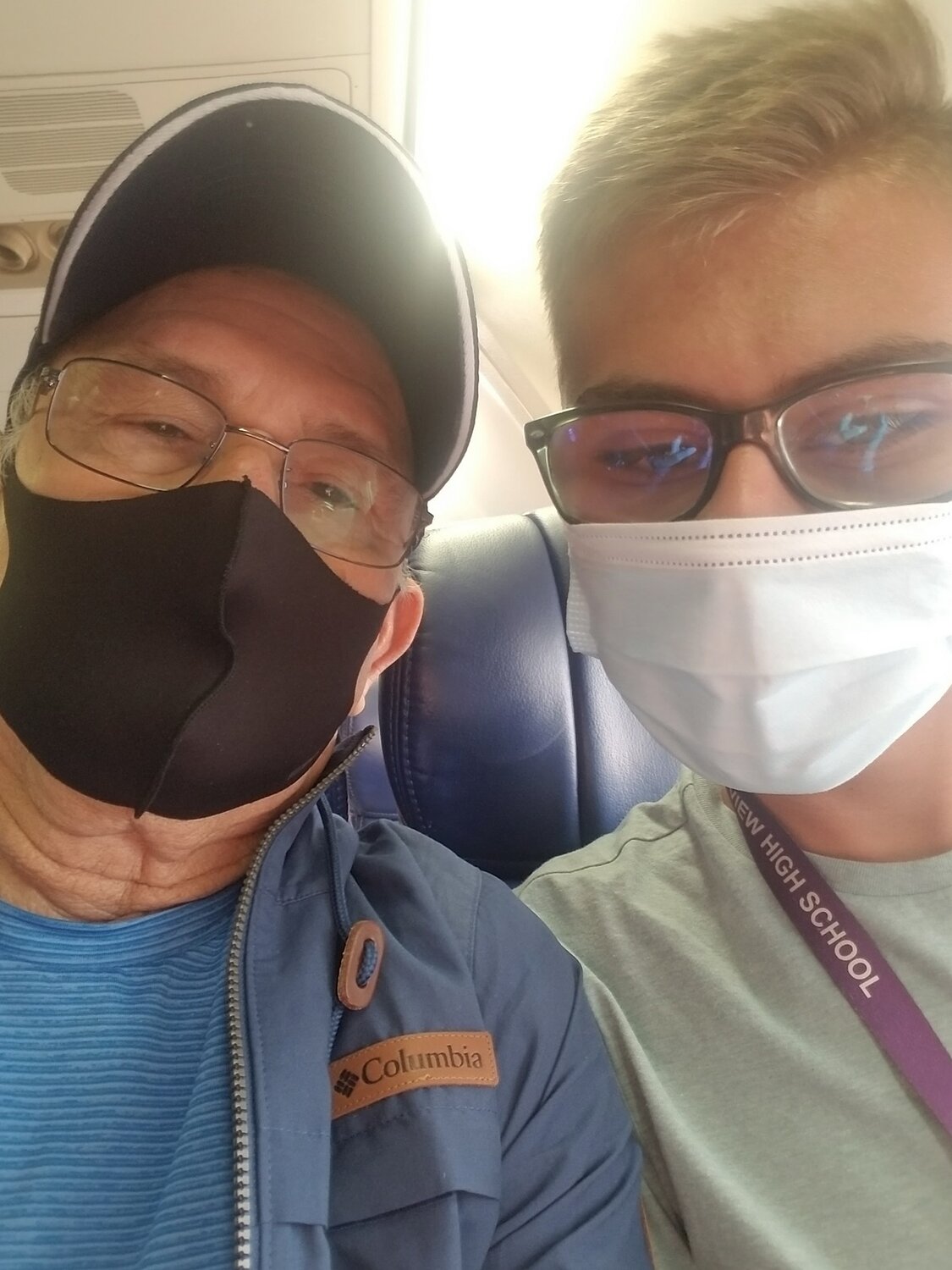
Known as the social butterfly of the family, Benjamin is involved in several activities at Mountain View High School, including basketball, track and soon student council next year when he is a senior. He’s also known by his family and friends as a true helper.
“My freshman year, I helped out during an unexpected [fire drill], and it was a real fire,” said Benjamin. “I got two students out of the building, meanwhile my teachers and other helpers in the class were focused on other students that needed a little bit more assistance."
This is a moment of pride for his parents who still bring it up when talking about all things Benjamin. They also love to talk about his first trip out of state without his parents. For his 18th birthday, after receiving his first official state identification, Benjamin went to Kansas City with his grandfather. While travelling went smoothly, there were some challenges.
“Trying to figure out which direction our gate was our first big challenge. Getting onto the plane was kind of easy, but it was a little bit hard trying to figure out, like, easy access to get on and off the plane,” said Benjamin. “This was my first time, not officially going solo, but going with another family member that can't move as quick as, like, I do.” He is a track runner after all.
And the next time Benjamin travels through DIA there will be an extra system in place to help him all using the symbol of a sunflower. The airport recently implemented a sunflower lanyard program, which started in 2016 at London's Gatwick Airport. People traveling with hidden or invisible disabilities, like Benjamin, will receive and wear a lanyard with sunflowers on it to the airport.
“[It’s] a warm, inviting flower,” said Paulette Richardson, an aviation customer service agent at DIA. “So I think that when someone sees it, they think of someone warm, someone helpful that can provide assistance to them. It's very bright. It draws your attention to it.”
Trained staff and volunteers will recognize the lanyard as a visible way to for people to say, 'I have a disability and may need extra help.'
"So this program, you know, for us, just really resonated as a way to say, ‘Hey, we see you, we care about you, and we want to improve your experience and make sure you have the same experience as anybody else coming through our airport,’” said Shawn Smith, the acting senior vice president of culture and strategy for DIA.
The Centers for Disease Control and Prevention report more than 61 million Americans live with a disability; that’s 26% of the country’s population and the majority (80%) of those are hidden or invisible disabilities.
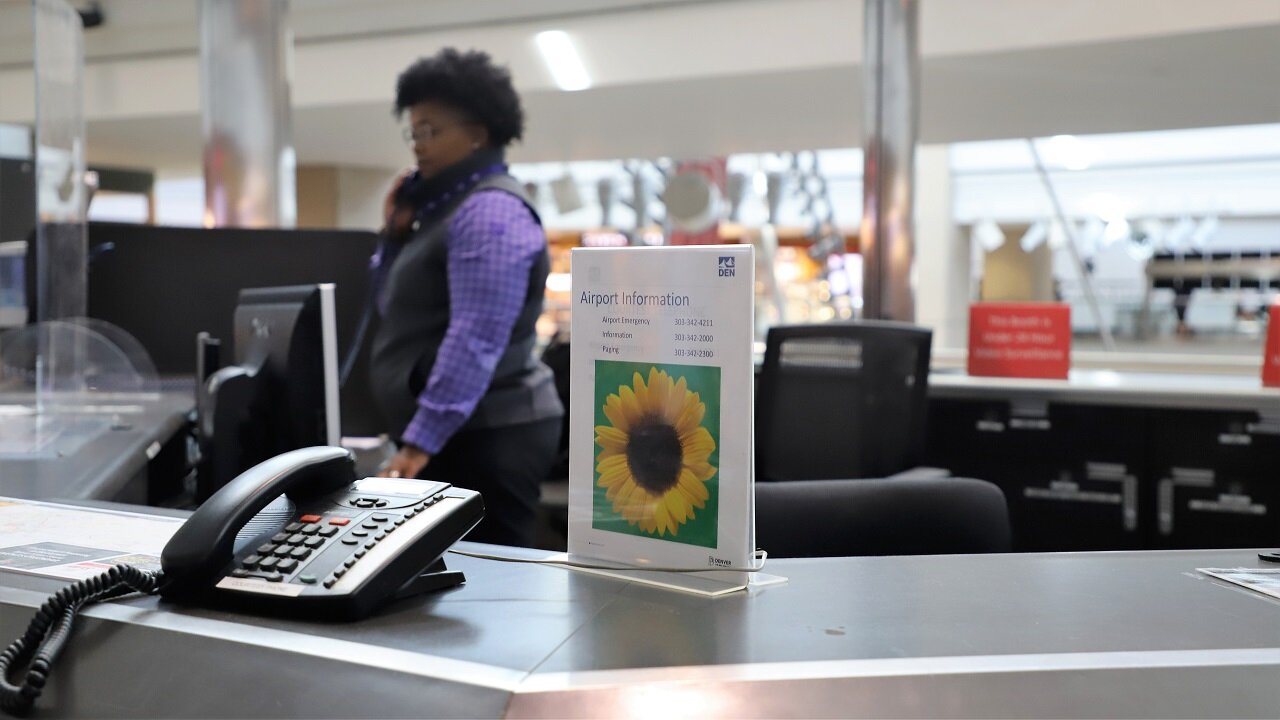
To implement this program at DIA, the airport placed sunflower signage at each one of the four information booths — one in the terminals and one in each of the concourses. The sunflower sticker or sign indicates a safe space for anyone with hidden disabilities to go if they feel lost, overwhelmed or need some help. Staff and volunteers are trained to see the lanyard and understand what it means and offer assistance. Additionally, staff members or volunteers who are trained in this way are badged with the sunflower pin as another subtle sign that they are there to help.
“I'm always looking for a way to elevate someone's experience at the airport, and I thought that this was a pretty cool way to do it,” said Richardson after she received her training. “It doesn't draw too much attention, but it still is a way for us to know that there might be someone around us that needs a little extra help.”
This program is entirely free and is available to anyone, no questions asked. As a mom of a son with ACC, Clavijo-Diaz couldn’t contain her pure joy about the program when she saw the announcement on social media.
“The excitement to know that they're recognizing invisible disabilities and that through this program they're empowering, they're advocating, they're giving voice to people that may or may not feel comfortable to share, but with this lanyard it allows them to say whatever they need to say visibly," said Clavijo-Diaz.
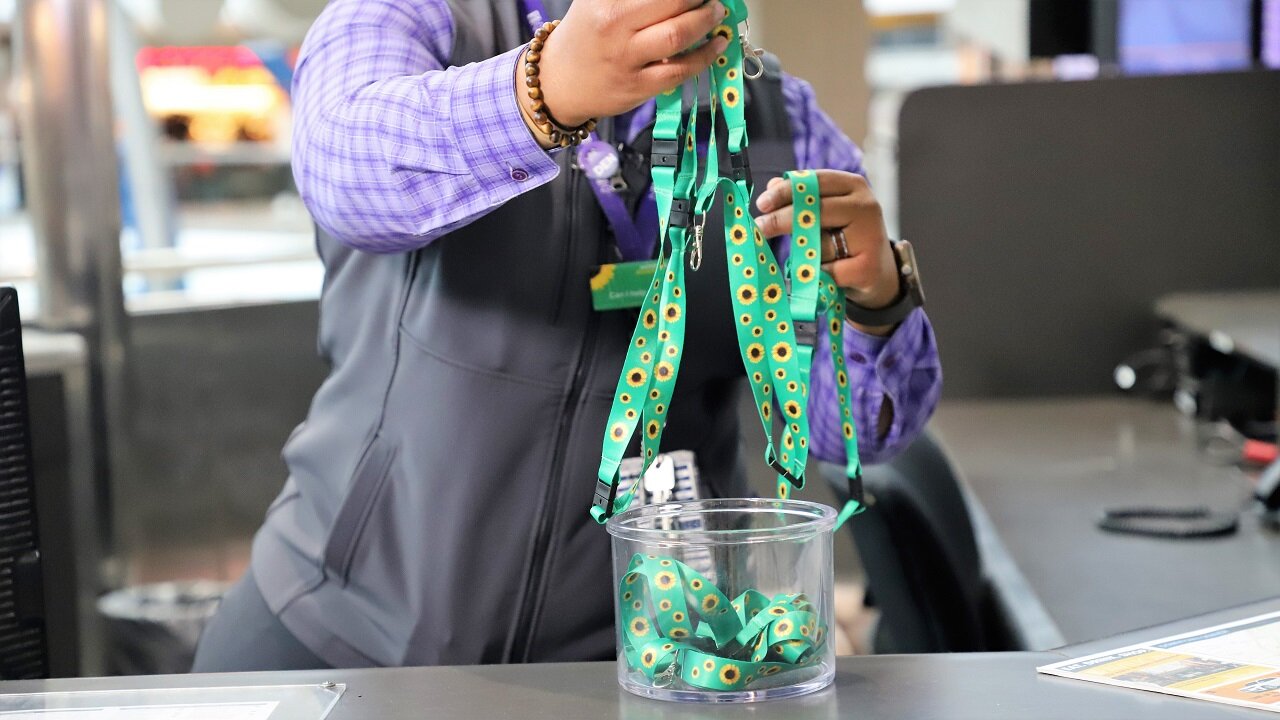
Benjamin was so excited when his mom told him about the program at DIA that he wanted to know right away when they could plan their next trip out of that airport for him to get a lanyard. Regardless of when the Diaz family is able to make that next trip through DIA, Clavijo-Diaz knows for Benjamin a big part of his life has changed.
“He could reach out and not have to explain, ‘I have ACC, I have sensory processing disorder. I have a shunt … I've had surgery in my legs that slow me down and can sometimes affect my movements.’ He doesn't have to do that because there'll be people there that will recognize that and be able to say, ‘How can I help? How can I serve you today?’ That opens so many doors for him that would not have been there without that program for something as simple as a sunflower lanyard,” said Clavijo-Diaz.
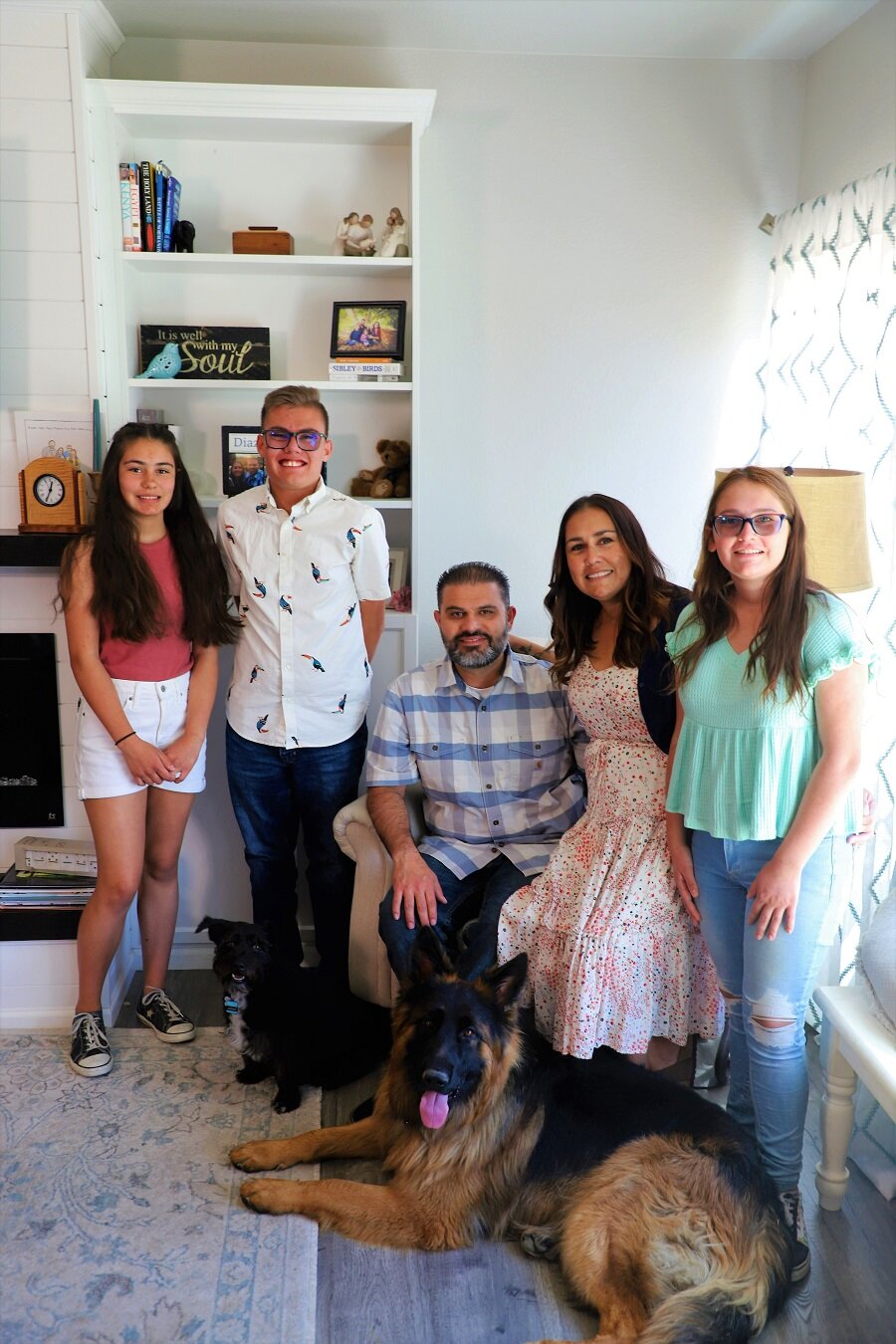
While this sunflower lanyard program began in airports, other stores, restaurants or other public spaces have started to adopt the sunflower symbol and training to also be more inclusive. Since announcing the program, Smith said the feedback has been incredibly positive and transformative.
“We have other airports who have asked us now to help them implement the program and to help them understand how we're doing it, as well as some local agencies here in the city who've asked ... to get a few lanyards that they can use to share with their staff in hopes of implementing the program there,” said Smith.
As Benjamin gets ready to finish up his junior year of high school, more conversations about living independently are happening within their family. Clavijo-Diaz said she feels like implementing the sunflower lanyard program can be a huge step forward for Benjamin as he goes out into the world.
“It all of a sudden gives us a space to say within this community, Benjamin is being looked out for. And people can recognize that lanyard and say, 'He may not be my son, but if he needs help, I can help him today,’” said Clavijo-Diaz. “And from a mom perspective to be able to see your children be independent and thrive and give back to the community and to the world around us ... that's what I wish most for them.”
Amanda Horvath is the managing producer with Rocky Mountain PBS. You can reach her at amandahorvath@rmpbs.org
Julio Sandoval is a multimedia journalist with Rocky Mountain PBS. You can reach him at juliosandoval@rmpbs.org.